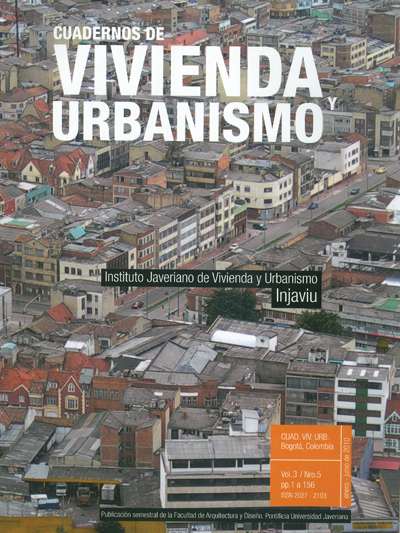Abstract
This article provides a historical overview of social housing policy in Mexico during the period from 1940 to 1999. Through the study of the first housing programs and two of the main housing institutions —Infonavit and Fovi—, it demonstrates how adaptations to the implementation of the policy reflect the interests of the business sector in housing construction, rather than meeting the population’s needs. It also shows the impact of the guidelines of the multilateral organizations which, during the 1990s, were expressed in financial deregulation and the privatization of ejido lands. These arrangements enable the consolidation of housing development groups whose intervention expands the periphery of Mexican cities by buying up large expanses of land and building enormous housing complexes.
This journal is registered under a Creative Commons Attribution 4.0 International Public License. Thus, this work may be reproduced, distributed, and publicly shared in digital format, as long as the names of the authors and Pontificia Universidad Javeriana are acknowledged. Others are allowed to quote, adapt, transform, auto-archive, republish, and create based on this material, for any purpose (even commercial ones), provided the authorship is duly acknowledged, a link to the original work is provided, and it is specified if changes have been made. Pontificia Universidad Javeriana does not hold the rights of published works and the authors are solely responsible for the contents of their works; they keep the moral, intellectual, privacy, and publicity rights.
Approving the intervention of the work (review, copy-editing, translation, layout) and the following outreach, are granted through an use license and not through an assignment of rights. This means the journal and Pontificia Universidad Javeriana cannot be held responsible for any ethical malpractice by the authors. As a consequence of the protection granted by the use license, the journal is not required to publish recantations or modify information already published, unless the errata stems from the editorial management process. Publishing contents in this journal does not generate royalties for contributors.


